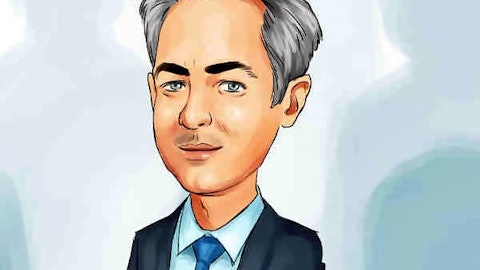Assuming corporate insiders know a lot more about their company’s prospects and recent developments than any of us, which they do, investors would be wise to keep a close eye on what insiders are doing with company shares. To a large extent, Board members and executives have up-to-date information about each aspect of their company’s business, including product launches, marketing campaigns, among others.
These highly-informed individuals are way ahead of analysts and portfolio managers, which possibly explains why their purchases tend to outperform broader market benchmarks on aggregate. However, retail investors should not blindly mimic each insider move and expect enormous trading profits. Instead, outsiders need to consider the underlying factors that dictate the timing of insiders’ transactions. Most insiders are selling shares for diversification or liquidity needs – the kind of insider selling investors should try to overlook. All in all, investors can get a better sense of a stock’s prospects by watching the trading activity of corporate insiders. Insider Monkey processed the majority of Form 4 filings submitted with the SEC on Monday and pinpointed the most noteworthy insider transactions, which are discussed later on in the article.
At Insider Monkey, we’ve developed an investment strategy that has delivered market-beating returns over the past 12 months. Our strategy identifies the 100 best-performing funds of the previous quarter from among the collection of 700+ successful funds that we track in our database, which we accomplish using our returns methodology. We then study the portfolios of those 100 funds using the latest 13F data to uncover the 30 most popular mid-cap stocks (market caps of between $1 billion and $10 billion) among them to hold until the next filing period. This strategy delivered 18% gains over the past 12 months, more than doubling the 8% returns enjoyed by the S&P 500 ETFs.

Chad McDermott / Shutterstock.com
Board Members of Commercial-Stage Biotechnology Company Purchase Shares Through Offering
Two members of Heron Therapeutics Inc. (NASDAQ:HRTX)’s Board of Directors purchased a great deal of shares last week. To start with, Kevin C. Tang, who has served as director of Heron since February 2009 and as Chairman since July 2012, purchased 2.46 million shares on Thursday at a price tag of $12.20 each, all of which are held by Tang Capital Partners LP and Tang (APPA) Holdings LLC. Mr. Tang holds an indirect ownership of 8.33 million shares following the recent purchase, as well as a direct ownership stake of 6,941 shares. John W. Poyhonen, director of Heron since January 2014, acquired a new stake of 10,000 shares on the same day for $12.20 each.
The two Board members acquired the shares through a public offering, expected to raise around $150 million. The commercial-stage biotechnology company plans to use the capital from the offering to fund the continued commercialization and marketing of SUSTOL, the commercial launch of CINVANTI, if approved by the U.S. FDA, fund the ongoing and future clinical trials, as well as repay a portion of its outstanding debt. SUSTOL, Heron Therapeutics Inc. (NASDAQ:HRTX)’s first commercial product, was approved by the FDA in early August 2016. SUSTOL is the first approved 5-HT3 receptor antagonist with an extended-release effect and five-days of Chemotherapy Induced Vomiting (CINV) prevention for moderately emetogenic chemotherapy and most highly emetogenic chemotherapy regimens. Heron’s shares have plunged by 46% in the past year. Kevin Kotler’s Broadfin Capital held 2.85 million shares of Heron Therapeutics Inc. (NASDAQ:HRTX) at the end of September.
Follow Heron Therapeutics Inc. (NASDAQ:HRTX)
Follow Heron Therapeutics Inc. (NASDAQ:HRTX)
Receive real-time insider trading and news alerts
Let’s head to the next pages of the article, where more insider buying and selling recently observed at four companies is discussed.





